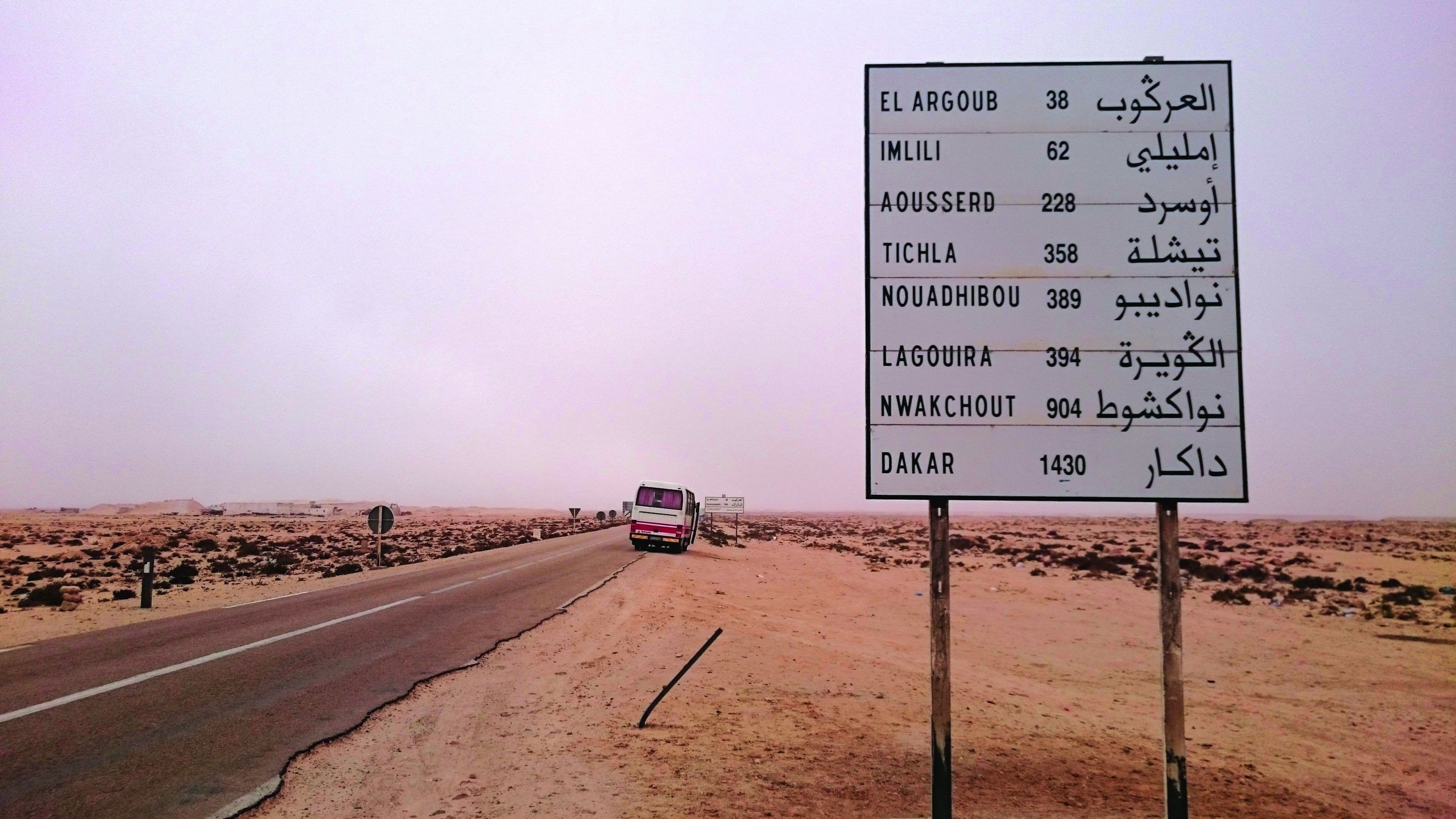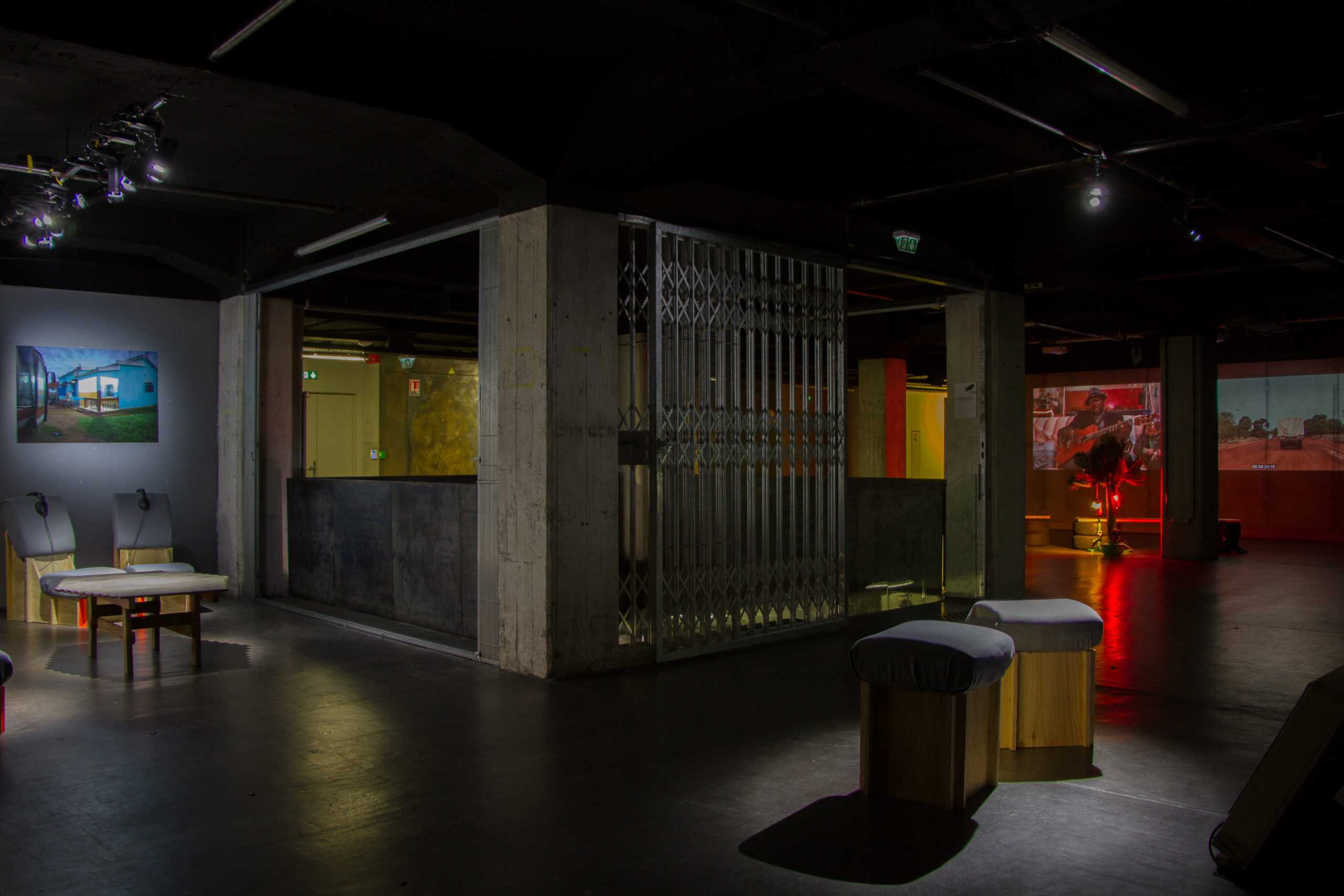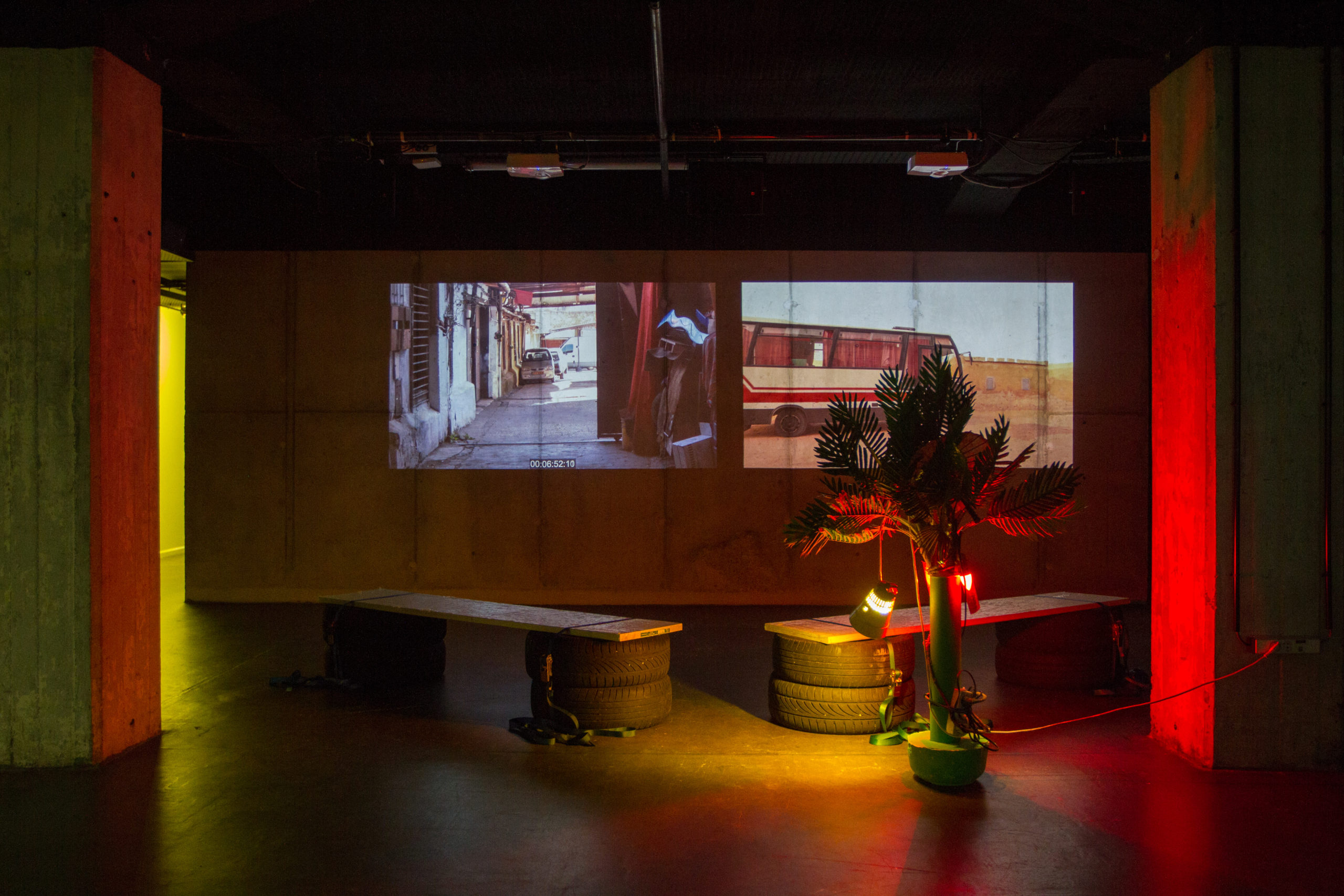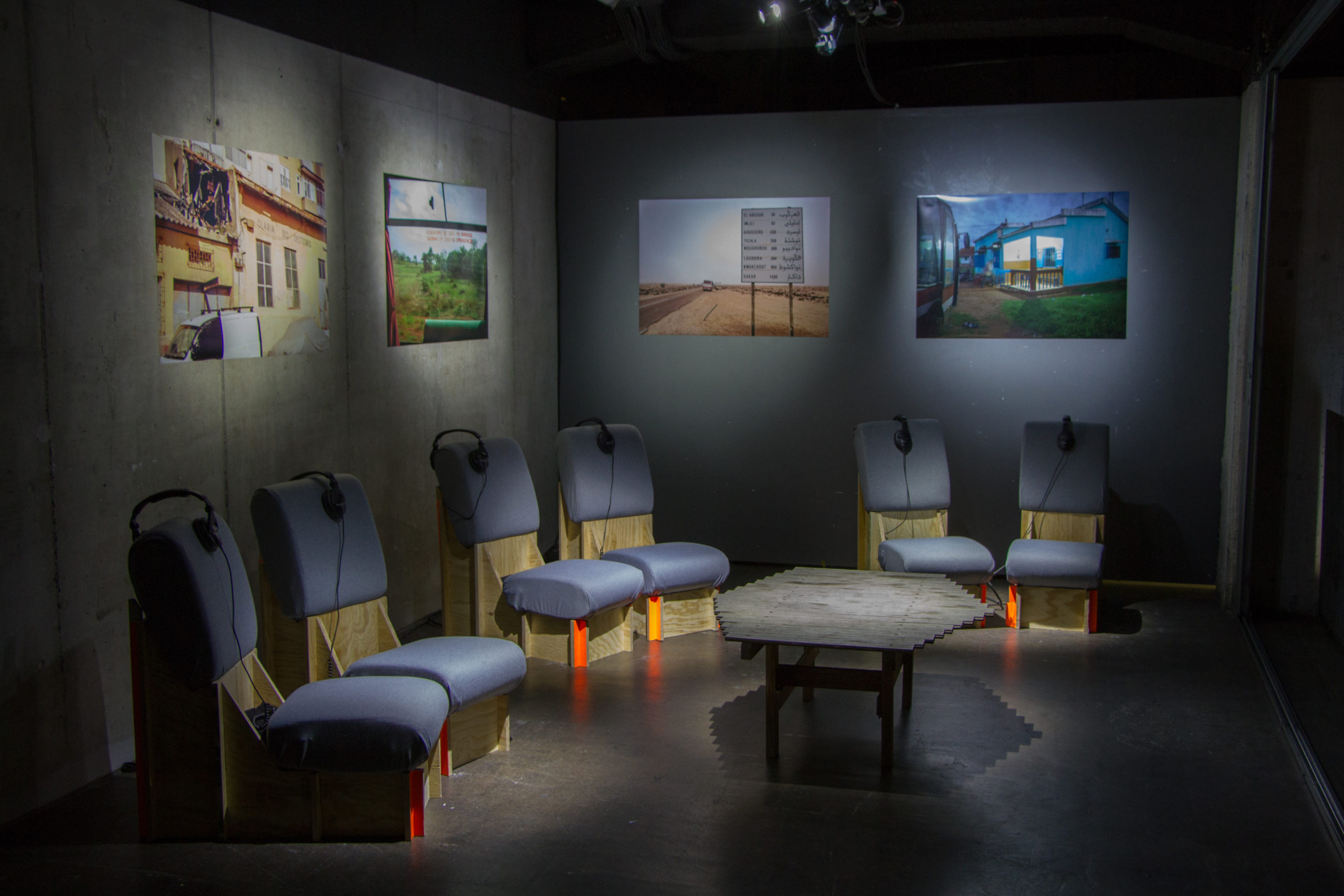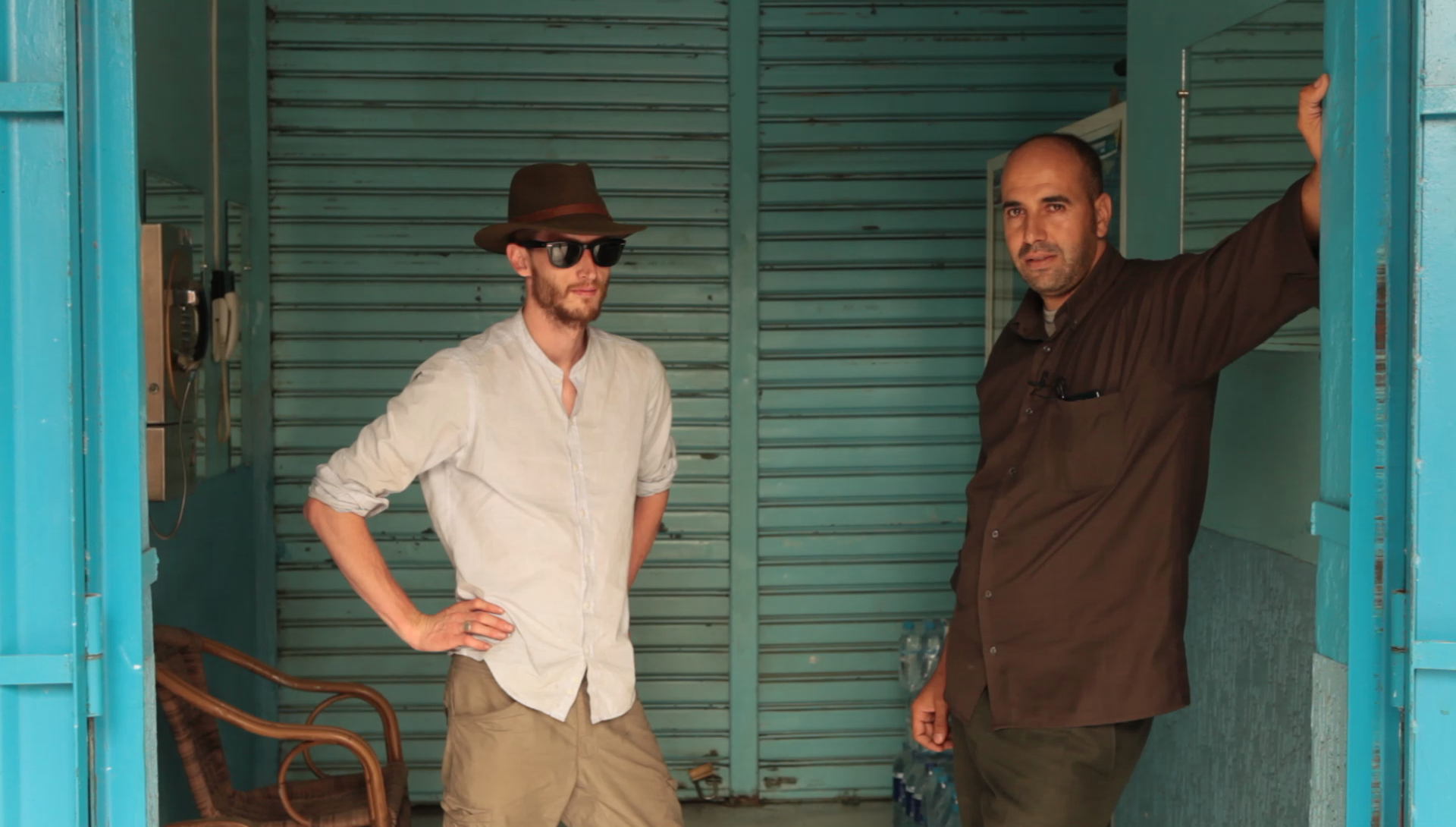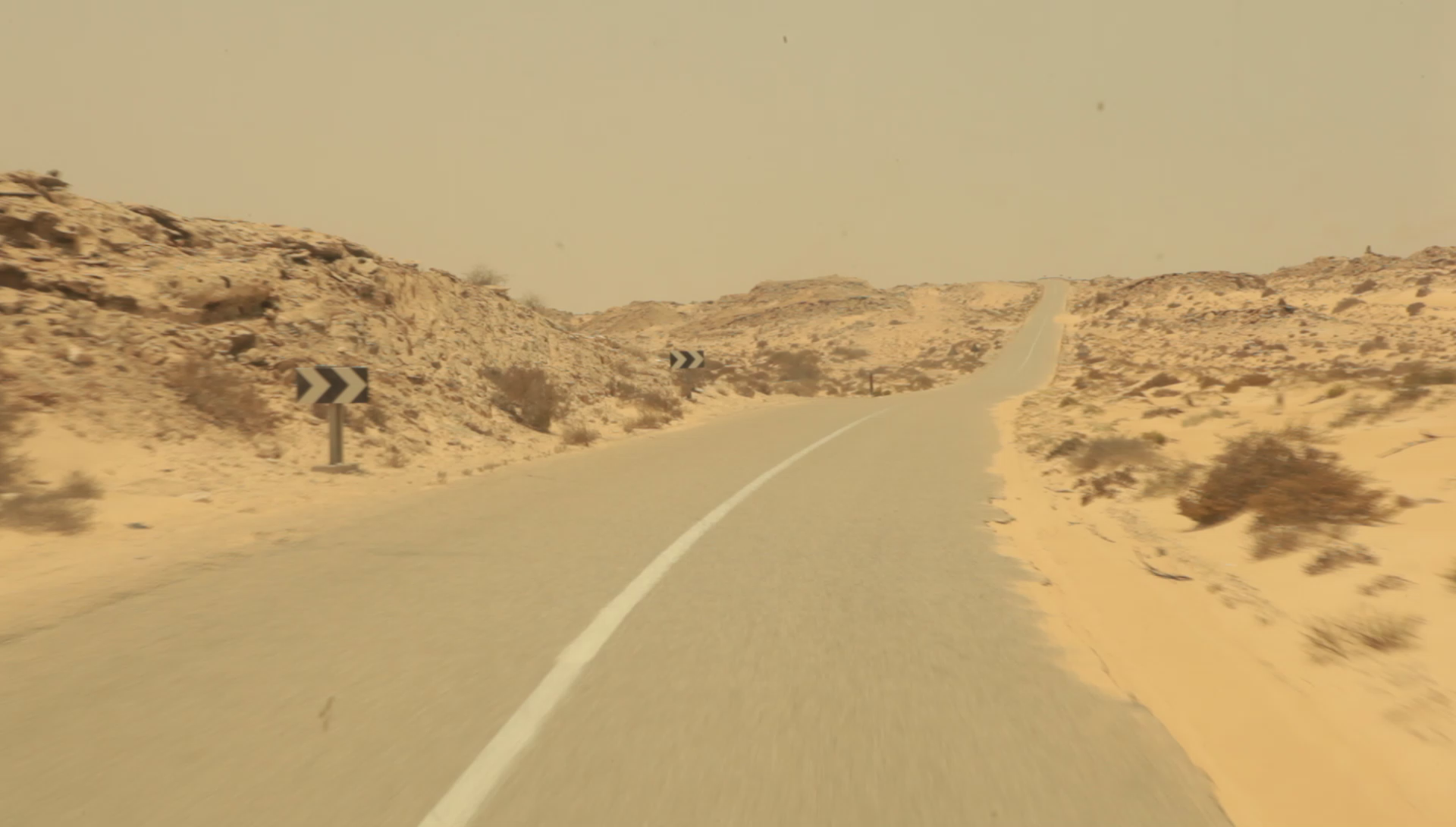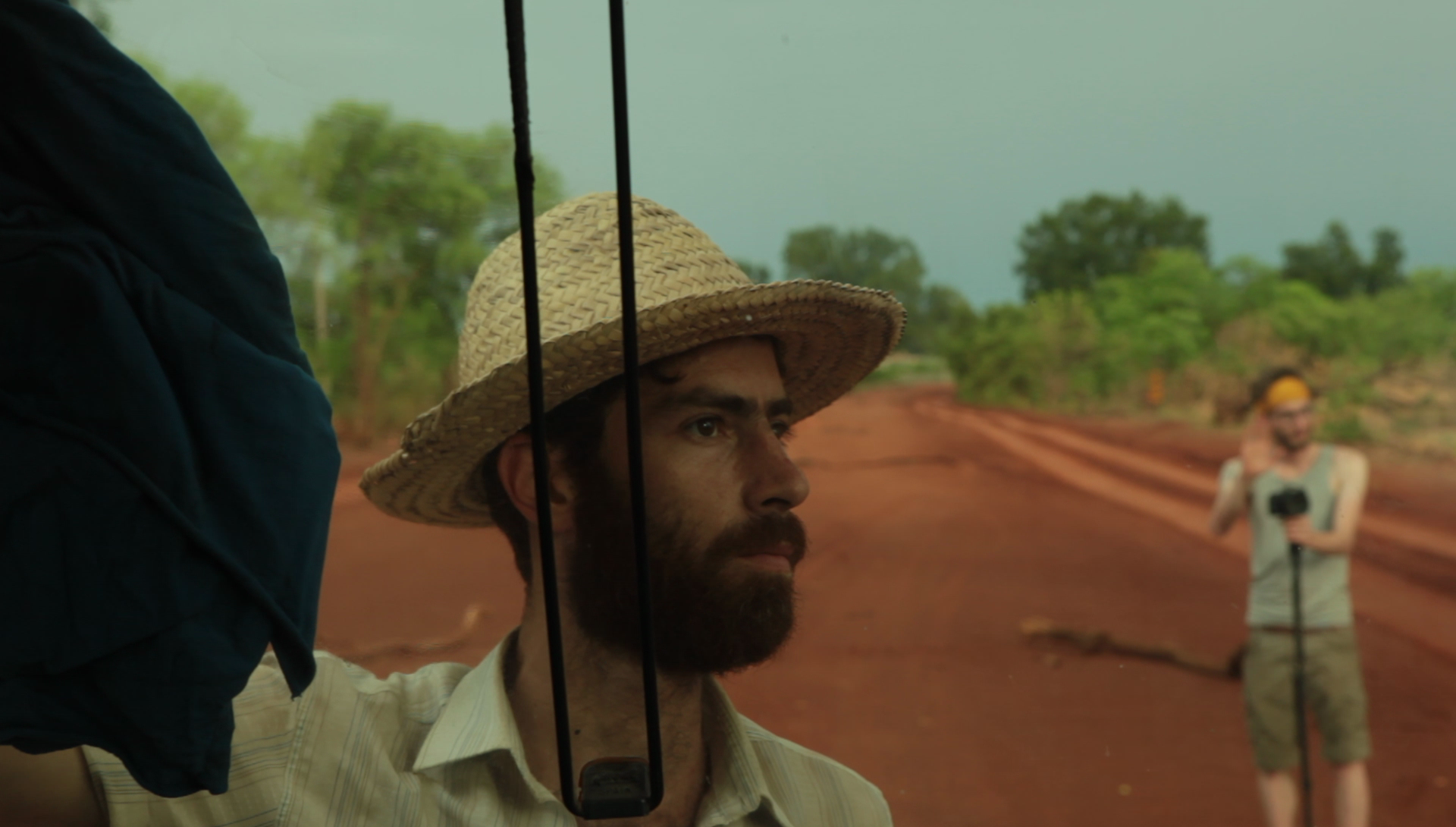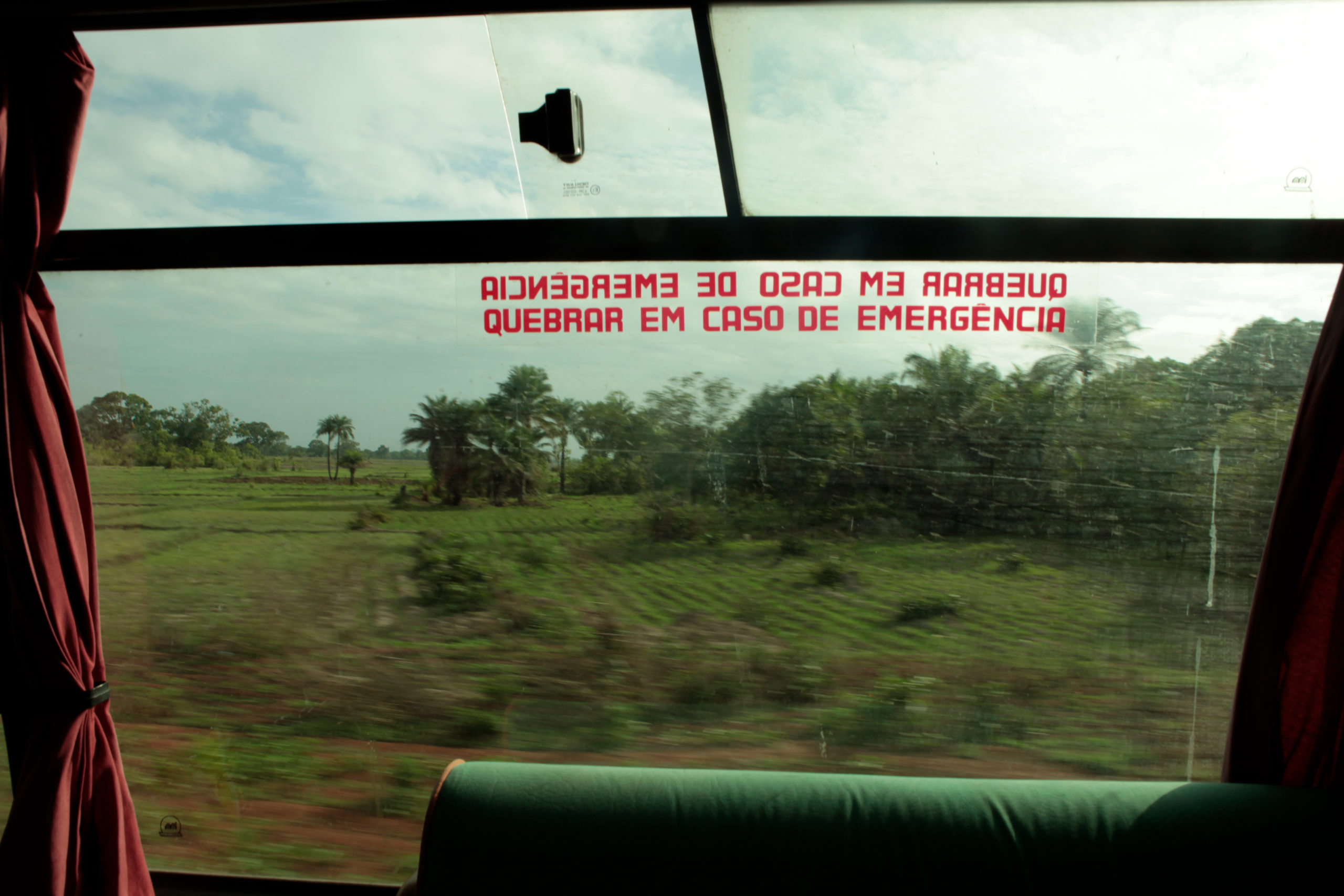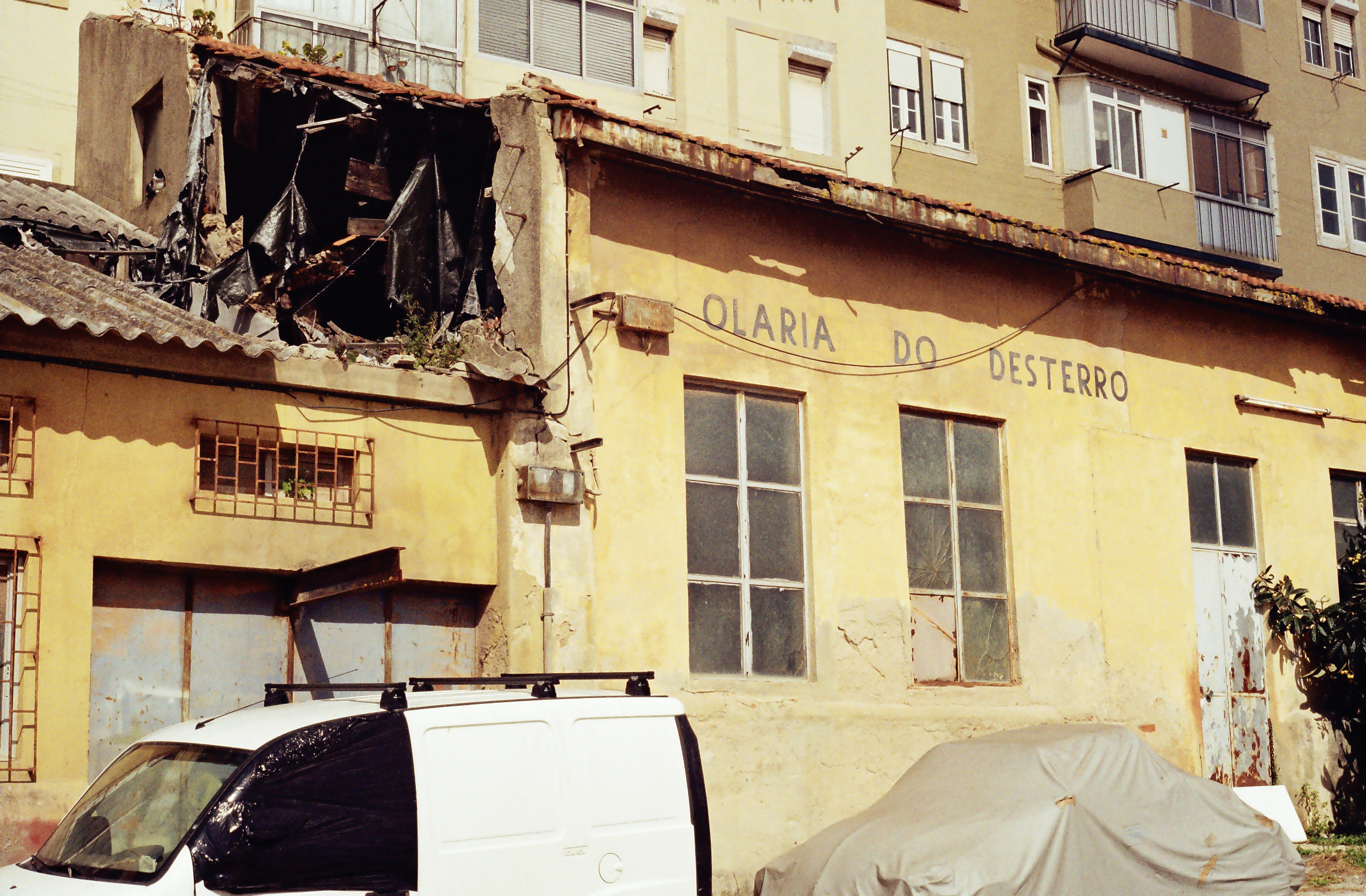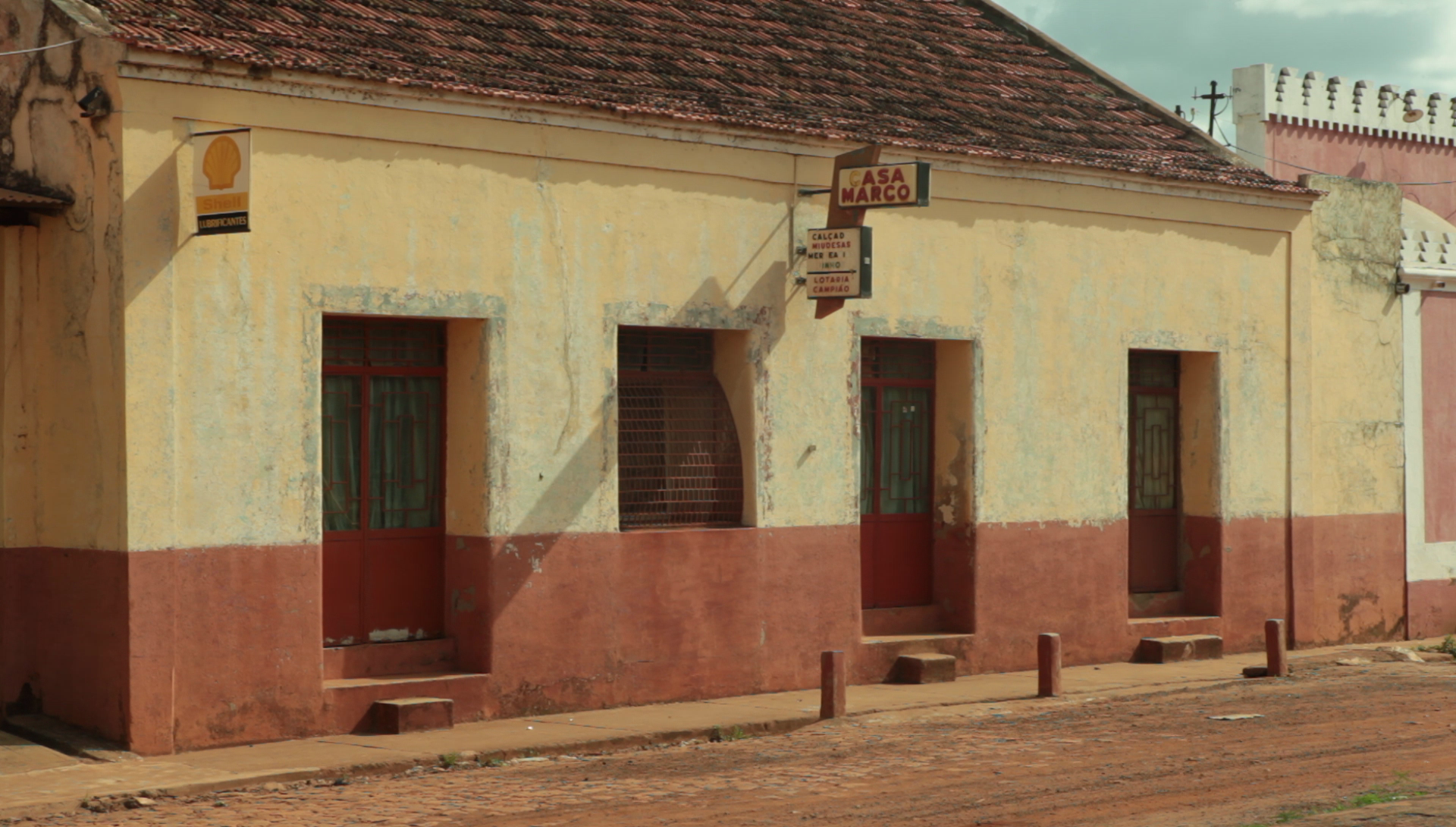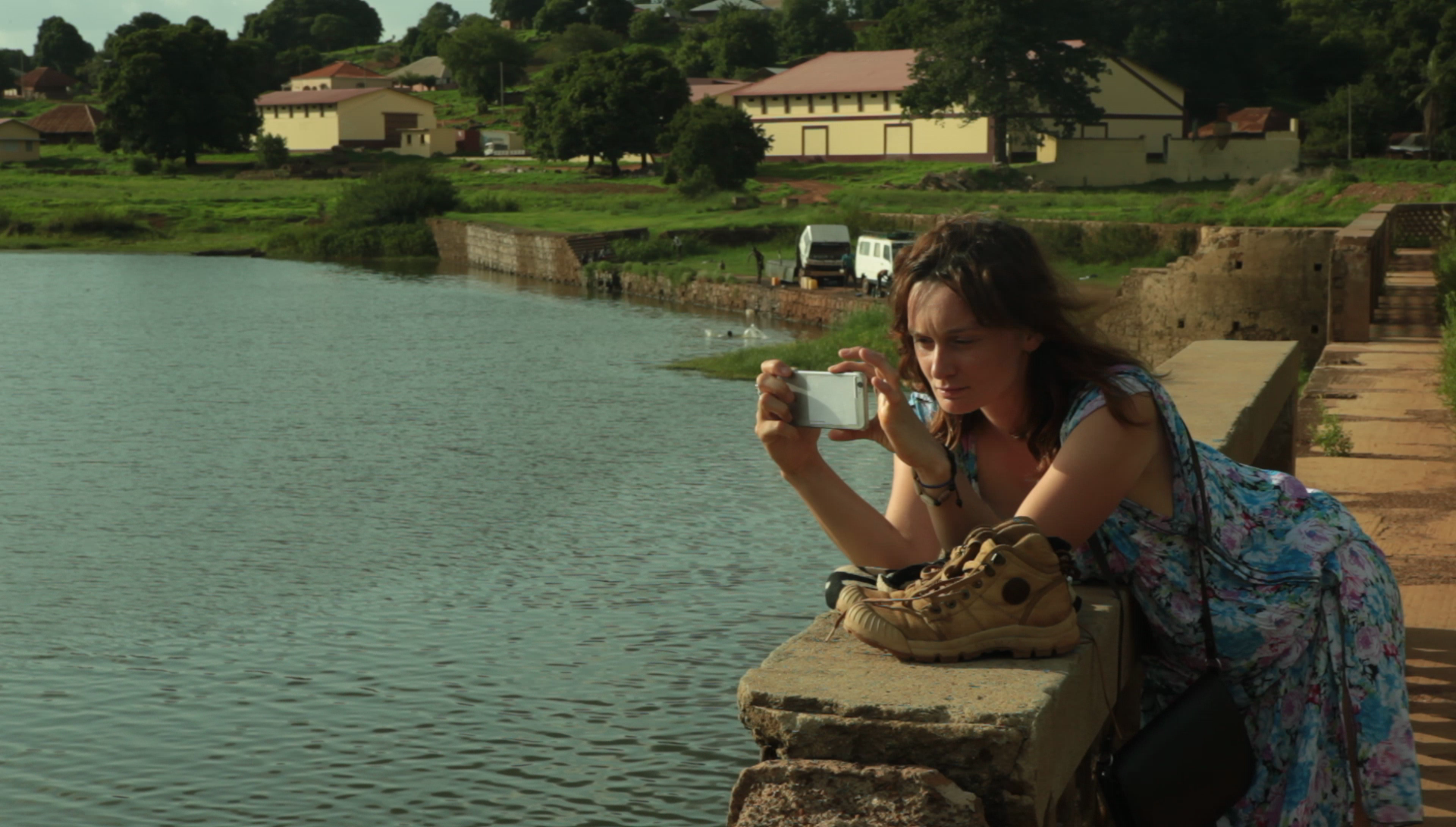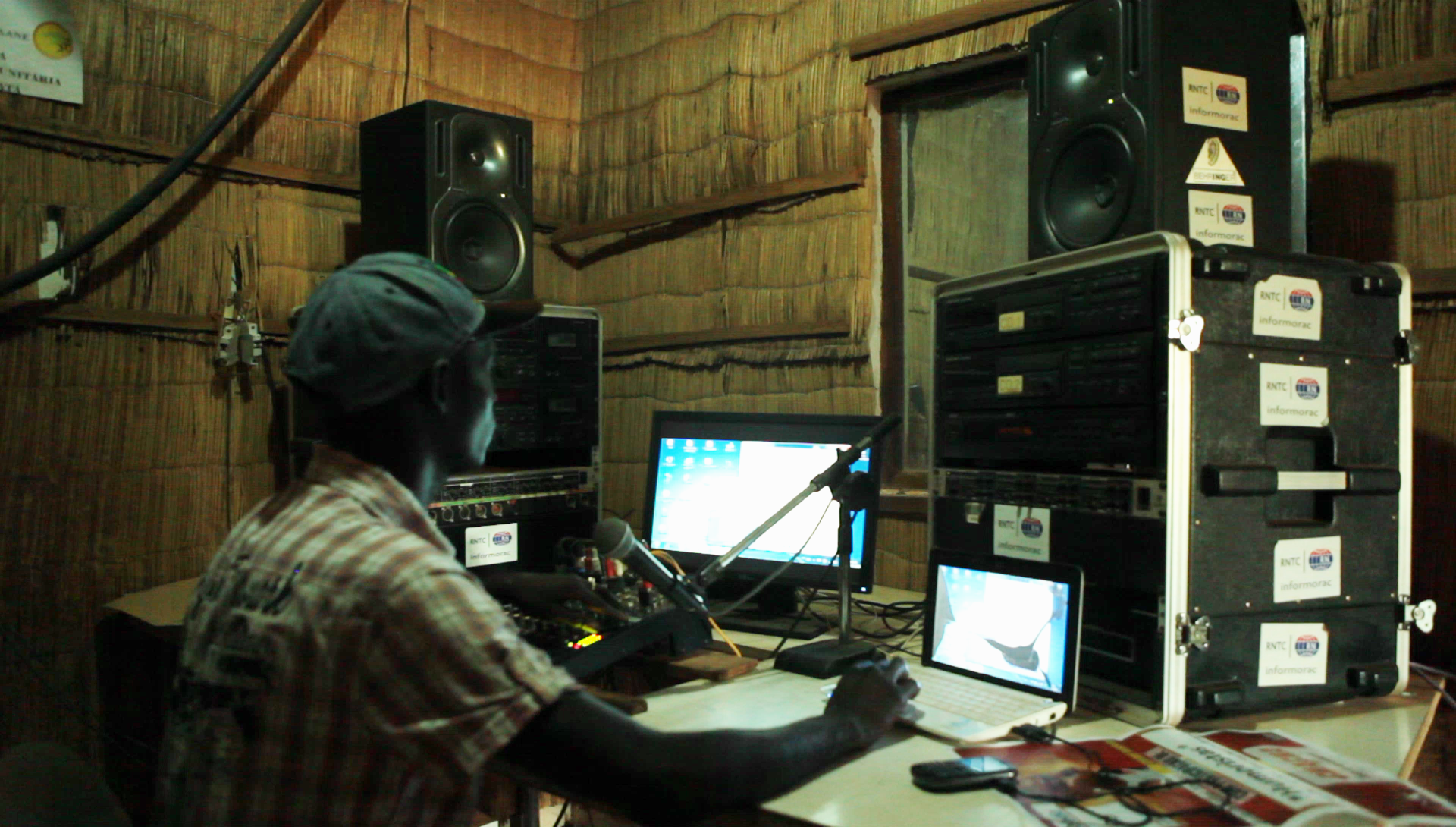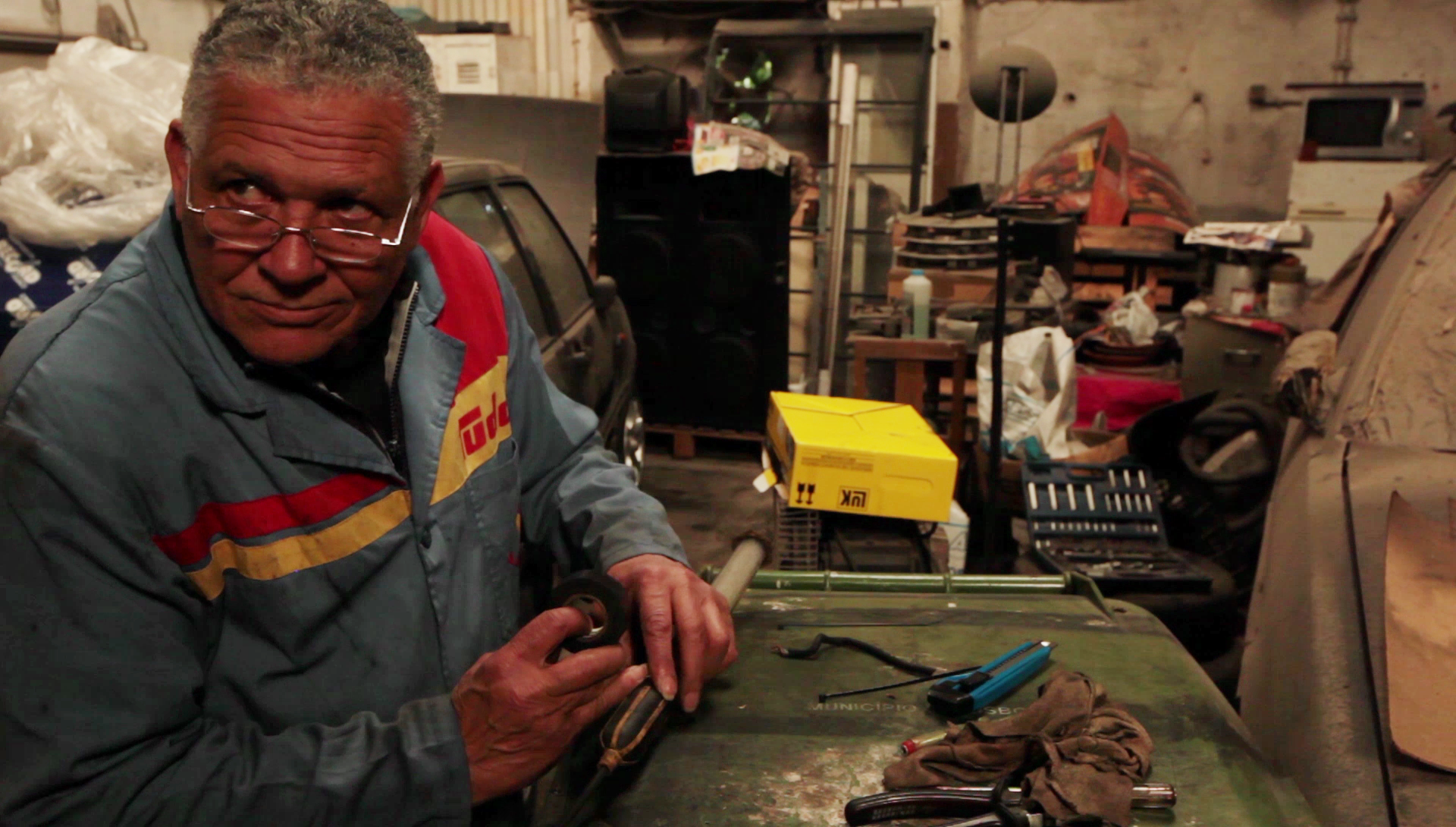HOTEL DESTERRO (2016)
EN: HOTEL DESTERRO talks about the colonial memories between Europe and Africa intertwined with contemporary West-African art. The project begins in a patio of a former pottery in Lisbon’s city center, where the narrative depicts the life of its inhabitants: the car mechanics, a fire extinguisher technician and his warehouse, a house appliances repairer and an ascetic vagabond, alongside with the journey of a bus riding south to West Africa. Memories and stories from European old colonies are approached in a non-linear narrative, creating a transitional space between documen- tary and fiction.
FR: HOTEL DESTERRO est un voyage en bus entre l‘Europe et l’Afrique de l’Ouest. Le film, prenant la forme d’une installation vidéo, se situe à l’intersection de différents genres. Il oscille entre la fiction et le documentaire, effectue un va-et-vient entre rassemblements conviviaux et larges paysages désertiques et explore les souvenirs de l’époque coloniale aux travers d’interviews ainsi que la jeune scène artistique ouest- africaine, dont on peut entendre la musique et les conversations. Cette vadrouille entre deux continents nous ouvre à un nouvel espace-temps et laisse émerger, au fil de ses images et de ses rencontres, un discours politique utopique regardant l’avenir.
ITA: HOTEL DESTERRO tratta delle memorie coloniali condivise da Portogallo e Africa intrecciandole con l’arte contemporanea dell’Africa occidentale. Il progetto prende av- vio in una ex fabbrica di ceramiche collocata nel centro storico di Lisbona, di cui viene mostrata la vita di chi la abita: alcuni meccanici di automobili, un tecnico di estintori nel suo magazzino, un riparatore di elettrodomestici e un ascetico vagabondo, sono messi a confronto con il viaggio di un autobus verso sud, direzione Guinea-Bissau. Memorie e storie delle vecchie colonie europee sono affrontate con una narrazione non-lineare, creando uno spazio di transizione tra il documentario e la finzione.
IDEA & REALISATION: Patrik Thomas, Sebastião Braga
CAMERA: Patrik Thomas, Sebastião Braga, Anselm Buder
PRODUCTION: THE RANDOM COLLECTIVE
ASSISTANT DIRECTOR: Anselm Buder
SOUND: Patrik Thomas, Sebastião Braga, Anselm Buder
EDITING: Daniele Grosso, Filipe Carvalho
PRODUCTION ASSISTANTS: Braima ’Lala’ Danfa, Inês Alves, Sophie Krause, Fidelia Lutterbeck, Medina
TRANSLATION: Filipe Carvalho, Isabelle Tondre, Guida Miranda, Sarah Schrimpf
MEDIA INSTALLATION: Patrik Thomas
CURATORIAL ASSISTANT: Isabelle Tondre
WITH: Cesarió, Manuel da Silva, Braima ’Lala’ Danfa, Baba Kanote, Eduardo de Angola, João e Carlos das Molas, Malenka, Ethan Emanuel Heil, Virgilio dos frigoríficos, Diogo da Cruz, Ziza and the Nouakchott Musicians, Medina, Sahad Sarr and band, Yousouff Sarr, Dokta, Master P and band, Tzuf, Fidelia Lutterbeck, The artists from Village des Artes Dakar.
ADDITIONAL SUPPORT: Institute Français St.Louis, Senegal, Rotary Club Strasbourg / Bonn, Akademieverein München, Cultural department – City of Munich, Patricia Günther, Winfried Lutter, Caro Daube, Mathias Reitz Zausinger, Annette Reeker, Oliver Uenzen, Joachim Lutterbeck, Kay Krause, João Figueiras.
Hotel Desterro is a voyage from Portugal to West Africa, a pending journey between contemporary West-African art and memories of colonial times, warm gatherings of people and wide desertscapes. The film crosses different layers of narratives within the colonial memory discourses in Portugal and West Africa, to reflect on the emergence of a revolutionary utopian political discourse nested in contemporary West African art. This travel through different geographies has its starting point in a former pottery in Lisbon. Old and rusted objects accumulate with time, and the camera observes this precarious, obsolete way of life in the old workshops: car mechanics, a fire extinguisher technician, a refrigerators repairer and a vagabond whose home is under the same roof. These characters share their memories and stories about former Portuguese colonies, other European Nations such as the United Kingdom, France and Germany, with the camera. Those are depicted in a non-linear narrative. The oscillation between memories and storytelling creates an ambiguity between reality and fiction inside the film. Daily tasks and casual conversations over the days of the journey were important and allowed a closer relationship with the people involved.
Though the camera depicts many landscapes of West Africa, one perceives that the roughness of the sole causes a struggle for people to survive. After a long period of colonization, they hope for a better future, and express it, for example, through music. This plays an important role in the film and as some people point out themselves, music has no borders; only a place of birth, that reaches out to all countries as a universal language.
In opposition to the historical narrative of the birth of Nations, music is the ultimate expression of liberty, where different cultures meet, communicate with one another and travel through all countries. In Europe, people claim for more liberty of movement but on the other hand impose a heavy burden on other people from outside the continent restricting this liberty of movement as much as each country can.
The bus is both a character and a stage. One can follow the interaction between the bus and the crew all along the journey to each place, through music performances aboard and informal interviews. Hotel Desterro does not aim to show an already too well known paternalistic imagery of West Africa, rather, it develops new relationships with the people and locations encountered on a daily basis. The camera is no spectator, it is a companion, an element of exchange and interaction. The goal is not to show what the people don’t have, but rather to provide them a platform to share openly their lives. One circulates between private and public space and the bus becomes both a place for confidence and dialogue as much as a room for gatherings and feast.
Making use of old and new music from West African traditions, as well as fairytale songs and other popular stories, Hotel Desterro develops a transcultural approach to give a voice and visibility to the contemporary West African music culture, celebrating life and looking forward to the unknown future instead of relying on the hopeless resentment of the past without, however, denying or forgetting it either. On the other hand, the Portuguese memories seem to be more stuck on recalling this lost paradise of the colonial period like a mourning state.
The film focuses on two main approaches of visual anthropology: observational and participatory cinema. Like an anthropologist starts his daily work, we would start filming by using the camera as a body, with no prejudice or presumptions. The camera only shows us what the space itself or the characters give us to see: life simply streams in front of the camera. As MacDougall emphasized: “the filmmaker is limited to that which occurs naturally and spontaneously in front of the camera. The richness of human behavior and the propensity of people to talk about their affairs, past and present, are what allow this method of inquiry to succeed”. We followed this approach by establishing strong connections with the people we met along the way. The time spent in the old workshops, for example, gave us the possibility to build closer relationships with the subjects.
The characters in Hotel Desterro have multiple identities: “as the person who exists outside the film, in his or her own being; as the person and as the person constructed once again in the viewer’s interactions with the film”. (MacDougal, 2006). Influenced by one of Jean Rouch’s filming methods called cine-trance, the film is punctuated with rituals and human encounters in a very reduced and free approach. As Rouch stated several times, the sensorial experiences must prevail, free of any kind of filter or effect. The surroundings, encounters and events that take place are open gates for the narrative’s development. It is thereby possible to foster a relationship between the Self and the Other, and as MacDougal said, “individual experience presupposes a plurality of subjectivities, in ourselves and others, and these do not detract from our selfhood so much as they actively contribute to it”.
Lastly, the film was shot with several methods and the project developed into a multi-media and extended cinema conception. Hotel Desterro analyzes migration as a cultural process of sharing and appropriation as an ancient reality. This project evokes two distinctive, but related, time-spaces. The film deals on one side with the continuous evocation of memories, marked by the colonial times, and on the other side with the counter-position of the former colonizing countries towards the present migration movements.
If Portugal, by its geographical position, can be understood as a cultural intermediate between Europe and Africa, it is possible to highlight the complex interdependences among other European countries such as Germany, England and France. Through this oscillation between past and present, a very subtle and hidden form of neocolonialism reveals itself. The project Hotel Desterro aims to represent a transnational and transcultural idea of togetherness. It is a travel through culture that subtly depicts the utopian contemporary African dream.
TWO-CHANNEL MULTIMEDIA VERSION
2017
MACRO – Museo d’Arte Contemporanea, Roma, Italy
VISIO, Lo schermo dell’Arte, Palazzo Medici Riccardi, Florence, Italy Kunsthistorisches Institut, Bonn, Germany
Bienal de Arte, CPLP, Villa Nova de Cerveira, Portugal
18. Mediterane Biennale, National Museum, Tirana / Durres, Albania Die Blaue Nacht, Nuremberg, Germany
Le Shadok, Strassbourg, France
Cinema do Bairro, Inhambane/Maputo, Mocambique Kunst45, Academy of Fine Arts Dresden, Germany Künstlerhaus Palais Thurn und Taxis Bregenz, Austria
2016
Karl & Faber Munich, Germany (Excerpt) A Viagem Lisboa, Portugal (Ecerpt)
CINEMA VERSION
(( not yet released ))
PRIZES & FUNDING
Talent Prize 2017 Finalst, Italy
Cuncurso Jovens Criadores 2017 (Young Creators Award), Portugal French-German art prize CONTEMPORARY 2016, Strasbourg – Bonn Ida & Leonhard Wolf Preis, Cultural Department, City of Munich, Germany Project support by Academy association Munich, Germany
HOTEL DESTERRO MAGAZINE .PDF (Strassbourg exhibition publication)
